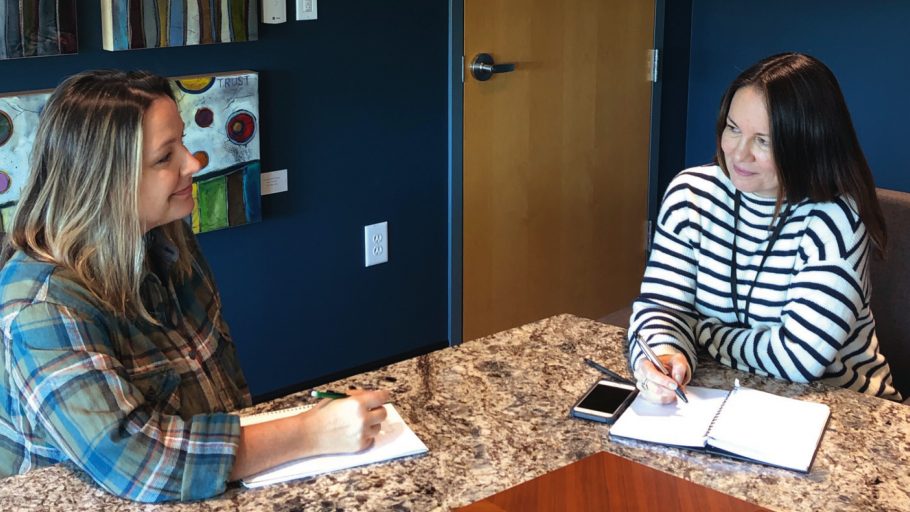You have been in the Internet infrastructure industry for almost 25 years in leadership roles. Tell us about your journey and the most rewarding parts.
My journey has been circuitous! Like many in this industry, I had no idea that I would end up here—in part because it didn’t exist when I was in school. I went to Columbia School of International and Public Affairs in ‘92 for international trade and management with the intention of working for the US Federal Government. I was accepted into the Presidential Intern Program, where I worked on the Computer Hardware and Software desk, as it was called, at the Department of Commerce. I covered a fascinating, new industry, the online industry.
I then took a leap into sales. It was a scary step; I took a huge pay cut with the hopes that I would make up for it in commissions. It’s a chance I probably wouldn’t take today, but I’m grateful I did back then. Not because it turned out I was good at the function, but because I found my calling in sales and the Internet industry. I began my career during the Internet boom of the late ‘90s with PSINet. During my five-year tenure, I helped open our first office in Brussels and then, our New York City location as a sales director. From there, I moved on to Digex, a company with a greater focus on hosting than connectivity. I remained in leadership roles with Digex, Globix, and ultimately QTS.
None of these companies are giant corporations, but the most rewarding part is to effect real change, see my ideas executed in the marketplace and be involved in different parts of the business. When QTS acquired Globix in 2006, we could migrate 200 colocation customers from our New York City datacenter to a new datacenter in under six months. I was given the reins to manage customer communications, negotiations and project plans, but I was also integrally involved in technical and financial decisions.
You founded Women Inspiring Leadership (WIL) group at QTS. Please tell us about the group and its objectives.
A few years ago, a colleague of mine and I were two of only a few women in leadership at QTS. We were approached by two smart, ambitious and hardworking women at the company to be their mentors. We didn’t have a formal mentoring program at that time but we immediately agreed, recognizing the importance of a role like this for women starting their careers. After about a year of informal mentoring, we agreed that we could be far more effective and reach so many more women, if we created a resource group. Happily, QTS was very supportive of the idea and WIL was born.
Our mission is to support and foster women at QTS and in the technology industry through discussion, education and networking. As we enter our third year, I’m happy to report that we have launched a mentoring program with over 60 participants, hosted many speakers, focus panels and training events. We have also started to work with other groups on diversity and inclusion topics. The importance of having many perspectives participate in the decision making is more important than ever.

Client management as function involves dealing with the customers (external component) and dealing with various functional groups within the company (internal component). What are some of the challenges you have faced and how did you overcome those?
The thing I love most about this function is that we deal with so many different types of companies, projects and challenges—no two days are alike! Naturally, with that comes some challenges—we depend on many groups within QTS to help us meet our client’s needs. A recent example is the challenges faced due to COVID-19.
While the datacenter business remains robust, our clients come from all kinds of industries: hospitality, healthcare, consumer goods and others. Most industries have been greatly affected, and we anticipated some irregularities to pay bills. Our finance group was adjusting expectations and we partnered with them to work with any customer who required new payment terms. Using information on government loan programs, we worked on customized payment plans for every client.
With the commoditization of the services that our industry is providing to customers, what are the differentiating factors important for client management?
A mature, intelligent team handling customer relationships can bring its own differentiation. Ensuring my team can speak fluently to the company’s processes, policies and products, while also appreciating the perspective of the client, is critical. In sales, it’s important to believe in your product to be successful. Fortunately, QTS is unique among our peers. We are the only datacenter company that has embraced and executed on digitizing our entire platform to allow for visibility, reporting and management of a customer’s environment. We also are leading in our sustainability initiatives and commitment to establishing Network Access Points where datacenter, subsea fiber and terrestrial networks converge, making them the ideal ubiquitous global interconnection hubs in the U.S.
What attributes do you try to instill in your leadership?
The most important part of management is understanding that you need to serve your team to ensure they have every tool they need to be successful and that you remove every obstacle from their path. This includes providing feedback, coaching and accountability. Timely communication is the key to ensuring everyone understands why we are asking them to do tasks a certain way and making sure they hear changes from me directly.
Finally, I share what I’ve learned over the years with my team. As a result of living through acquisitions, bankruptcies, divestitures and migrations, I know without a doubt that chaos equals opportunity. In 2006, Globix was up for sale, and so several employees left for safer positions. I understood the impulse but I had learned that it is worth waiting to see how things will play out before making a move. QTS purchased the company, invested heavily and took off like a spaceship.
You are well known for your disciplined approach. How do you enable this?
Discipline is taught; it takes time to become a habit and can be quickly lost so it requires constant oversight. As a leader, I must first model the behavior I expect to see from those I lead. My team has worked hard to acquire the discipline that enables them to be successful in their roles. They pay excruciating attention to detail, dig deep to get the answers and do not take the path of least resistance. With our disciplined approach, our clients know we advocate unceasingly for them and that we expect them to show up for us as well, which enables a true partnership.
In these unprecedented times, it is not uncommon for people to work long hours. How do you encourage your team to maintain a work-life balance?
I’m very lucky to have a seasoned team and, for the most part, they are great about ensuring work-life balance for themselves. Of course, there are times when it helps to provide perspective and situational encouragement. While PTO may not make sense these days, we’ve worked hard to make sure everyone has it because we need time for ourselves and our family.
What are your personal passions?
Over the years, I’ve had many different passions: running, traveling and even singing. Currently, my passion is mentoring, both in and out of the office. There is nothing as rewarding as sharing your experience and knowledge with someone going through a similar journey and helping them make sense of whatever challenge they may be facing.

